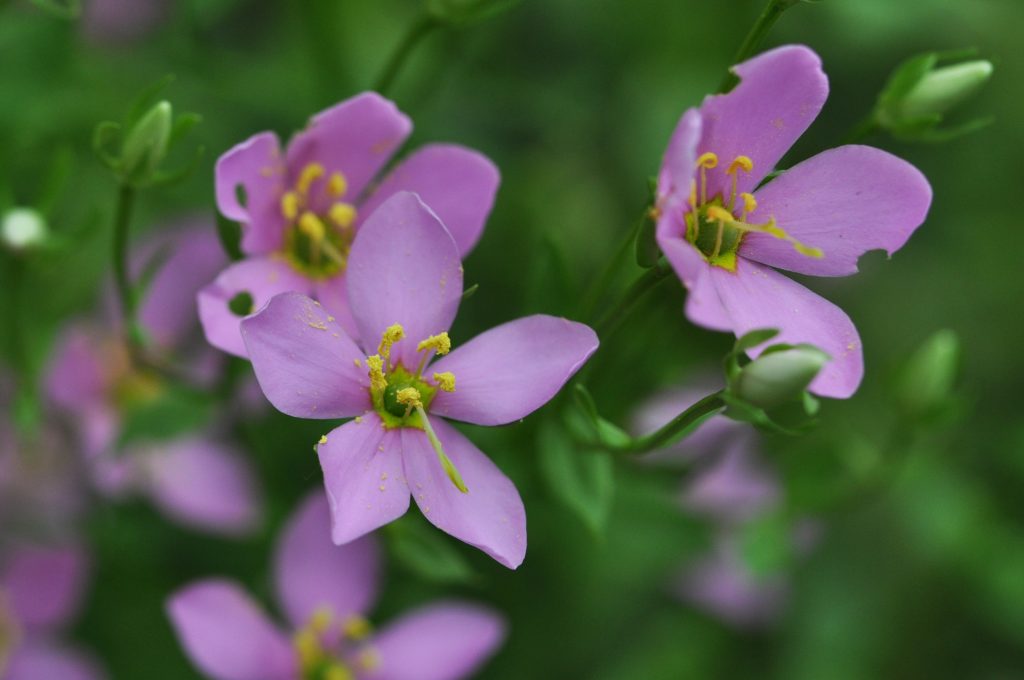Marsh-pink
Sabatia angularis
A stunning biennial in the gentian family (Gentianaceae), marsh-pink (Sabatia angularis) is also known as rose gentian, rose pink, or bitter-bloom. Native to the eastern and southern United States, it can be found growing in low, moist edges of open woods, as well as prairies, roadsides, meadows, and marshes.
Perhaps our favorite feature of marsh-pink is the deep rich pink of its flowers. From mid to late summer they mass in loose clusters atop 1-2’ tall, four-angled stems. At first glance from a moving vehicle, roadside populations appear as a quick flash of color, however stopping for a closer look reveals a spectacular summer floral display. Upon even closer inspection, each five-petaled, star-shaped flower is strikingly beautiful, with a greenish-yellow center outlined in red. The flowers of marsh-pink lack nectar, however they do provide a pollen reward to various species of bees.
There are many historic accounts of marsh-pink being used medicinally in North America throughout the last few centuries. It has been reported that a leaf tonic was used to treat indigestion and promote appetite and that the Cherokee drank marsh-pink infused tea to treat malaria. There are even accounts that the medicinal use of this species aided in reducing fever during the 1793 yellow fever outbreak in Philadelphia. One of this species’ common names, bitter-bloom, refers to the bitter foliage that is reportedly unpalatable to browsing mammals.
Marsh-pink grows best in moist soil in full to partial sun, and is infrequently offered in nurseries because of its biennial habit. It seemingly disappears in years of drought, only to reappear in an apparent population explosion during years of plentiful rainfall. As a biennial, it will overwinter in its first year as a dense, leafy basal rosette and then bloom, set seed, and die the following year. The tiny seeds are wind-dispersed and will self-seed in the garden. The secret to success with reseeding annuals and biennials is to leave enough open space in the garden to allow them to find room to get re-established each year. Marsh-pink would bring a vibrant splash of color to a backyard bog garden but would also be happy if given its own open spot in a sunny, moist perennial bed.
Pick up a free brochure and seeds of marsh-pink by stopping by the Garden!
Can’t make it to the Garden? We’ll send the seeds to you! Send a self-addressed, stamped business-letter envelope to:
2020 NCWFOY
North Carolina Botanical Garden
Campus Box 3375, UNC-CH
Chapel Hill, NC 27599-3375
Our staff if currently working remotely, and we have limited mail delivery at the Garden. If you have sent in a request for Wildflower of the Year seeds, please be patient. We will mail them to you as soon as we can. Thank you!
